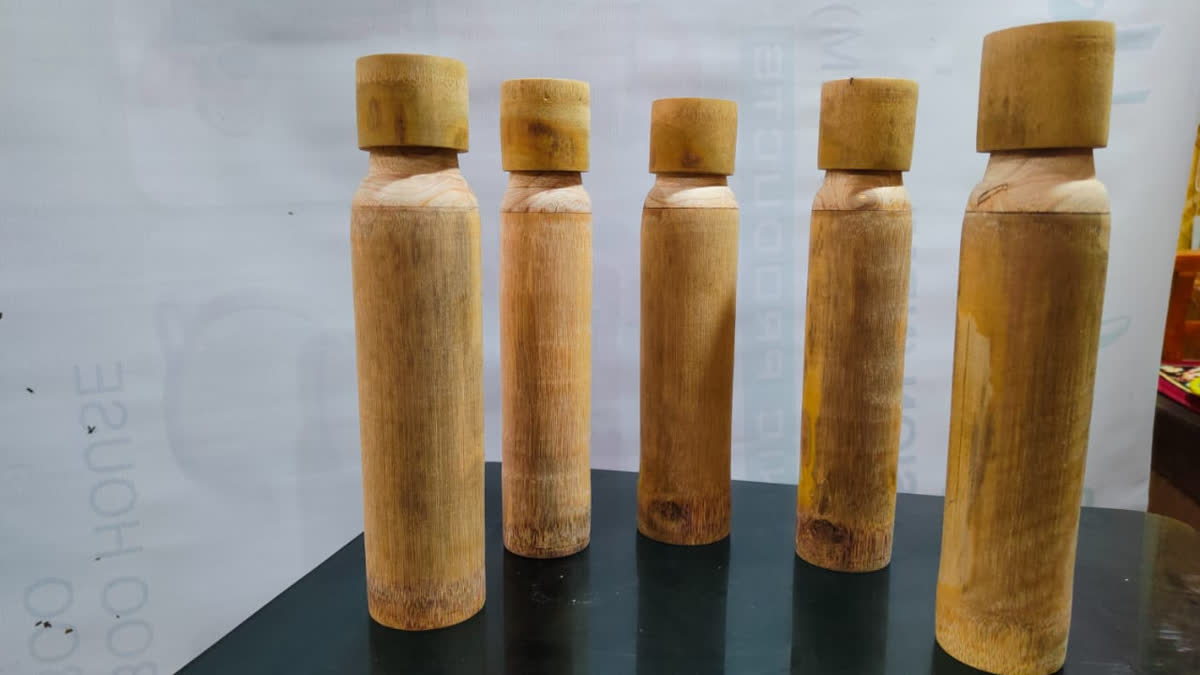Tezpur : A state already known for its eco-friendly initiatives, Sikkim has taken another bold step towards sustainability by phasing out plastic water bottles and embracing bamboo-crafted alternatives. As the first fully organic state in India since 2016, Sikkim is now committed to reducing plastic pollution further, starting in the scenic town of Lachen in North Sikkim’s Mangan district. The move aims at ensuring that tourists who visit the region each year do not indulge in spoiling the natural beauty with plastic waste.
The bamboo bottles, crafted by local artisans, are now available for sale at popular tourist spots across Lachen, Chungthang, and Lachung. Mikmar Lepcha, an artisan specializing in bamboo items, has been making these bottles since 2020. “Tourists love them,” Lepcha says, adding that the bottles have quickly become popular, priced affordably between Rs. 400 and Rs. 500. With the support of self-help groups, these bottles are distributed across the region, contributing to both environmental conservation and local economic growth.
It may be mentioned here that Lachen in North Sikkim had banned plastic carry bags in 2011 which was later followed in Lachung and Chunthang and Lachung.
The Sikkim State Rural Livelihood Mission (SRLM) has also been a strong supporter, helping to promote bamboo bottle production by providing resources and opportunities to local artisans. This grassroots effort complements the state government’s larger environmental goals, giving Sikkim a model of sustainable development.
For artisans like Indrakanta Kari Limbu, who has been producing bamboo bottles since 2016, going green through banning plastics is more than just a business opportunity. “The locals here are aware of the impact of plastic on our soil and environment,” he explains. “Tourists see this and respect it. They are happy to carry bamboo bottles, knowing they’re supporting an eco-friendly initiative.” Limbu also notes that the bottles, crafted with stainless steel and bamboo, are durable and available in 500 ml and 1-liter sizes, making them easy to carry for travelers.
Sikkim’s commitment to sustainability extends to its young generation as well. Narsingh Subba, a teacher and tour guide, says that schools have integrated these eco-values into daily life. “None of my students uses plastic bottles,” Subba says. “They understand the harm plastics cause and even participate in awareness programs to educate locals and visitors about eco-friendly practices.” For Subba, seeing the youth actively involved in these efforts is a sign of change and an imperative for visitors to adopt more responsible behavior.
With about 500 to 2,000 tourist vehicles traveling through Sikkim daily, the pressure on the local environment is immense. But with a blend of government backing and community involvement, Sikkim is showing that sustainable tourism is achievable. The bamboo bottles, apart from their eco-friendly use, symbolize a shared commitment between locals and visitors alike to keep the region free from plastic pollution and to set an example for other states.
Read More



